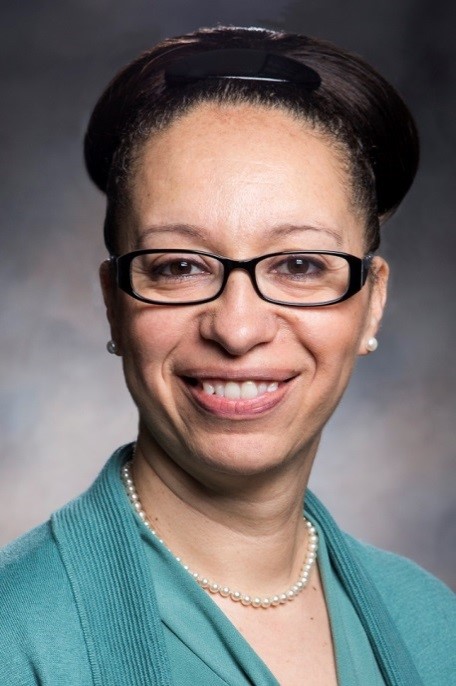Alumna develops prevention strategy for destructive behaviors for U.S. Navy
Dr. A. Monique Clinton-Sherrod, M.A. ’94, Ph.D. ’01, a Highly Qualified Expert for Primary Prevention for the Deputy Chief of Naval Operations, knows what it’s like to grow up in an underserved community. Born in a “small rural town to teen parents who had limited means of income and future prospects,” the research that she has conducted as a psychologist would predict that she and her parents would be at increased risk for adverse experiences such as substance abuse, intimate partner violence (IPV) and homelessness, she says.

“My lived experiences, however, speak to the resiliency of individuals to overcome the expected.”
Her parents earned advance degrees, making it hard for her to make excuses for herself.
So, she excelled in school and went on to study IPV and psychosocial outcomes at the Department of Psychology at Wayne State University where she worked with and was inspired by homeless mothers who stayed determined to better their lives.
In her last year as a PhD student, she presented research at the American Psychological Association Annual Convention where a representative for RTI International
encouraged her to apply to the institution.
She did. And, for seventeen years, she worked at RTI International as a research psychologist focused on violence-related victimization, perpetration and prevention. Clinton-Sherrod partnered with Start Strong and the Centers for Disease Control and Prevention on numerous projects that impacted diverse groups of people, from college students to service members.
Last year, she was approached by the U.S. Navy about an opportunity to develop and drive prevention strategies for the destructive behaviors of sailors, and saw it as an opportunity to apply the research she’d studied for two decades in a new way. Now she provides direction for a primary prevention strategy for the U.S. Navy to counter substance abuse, sexual violence and suicide.
While such destructive behaviors can have adverse impacts on families and communities, Clinton-Sherrod says that these experiences are preventable.
“I can recall collecting survey data with one survivor who disclosed that this was the first time she had ever discussed her experience and had never fully processed it as a sexual assault. She noted appreciation for just having someone listen and that it was cathartic for her to have an outlet to share what she went through."
For Clinton-Sherrod, there’s nothing more rewarding than witnessing how her research impacts people firsthand.
“My work provides an opportunity for voices that may not always be valued in the way that they should—to be heard, and hopefully used to aid in the prevention of such trauma for others.”